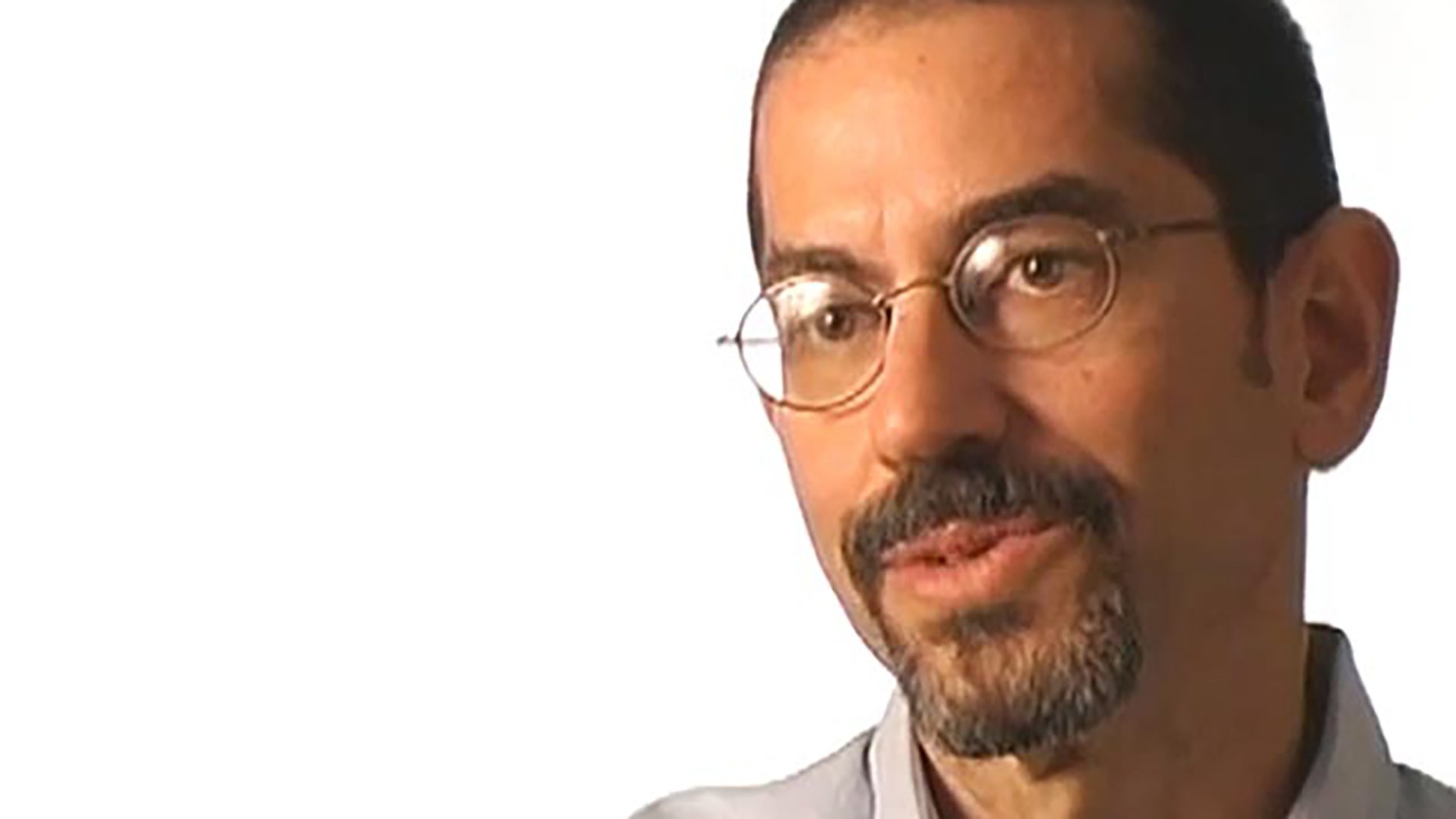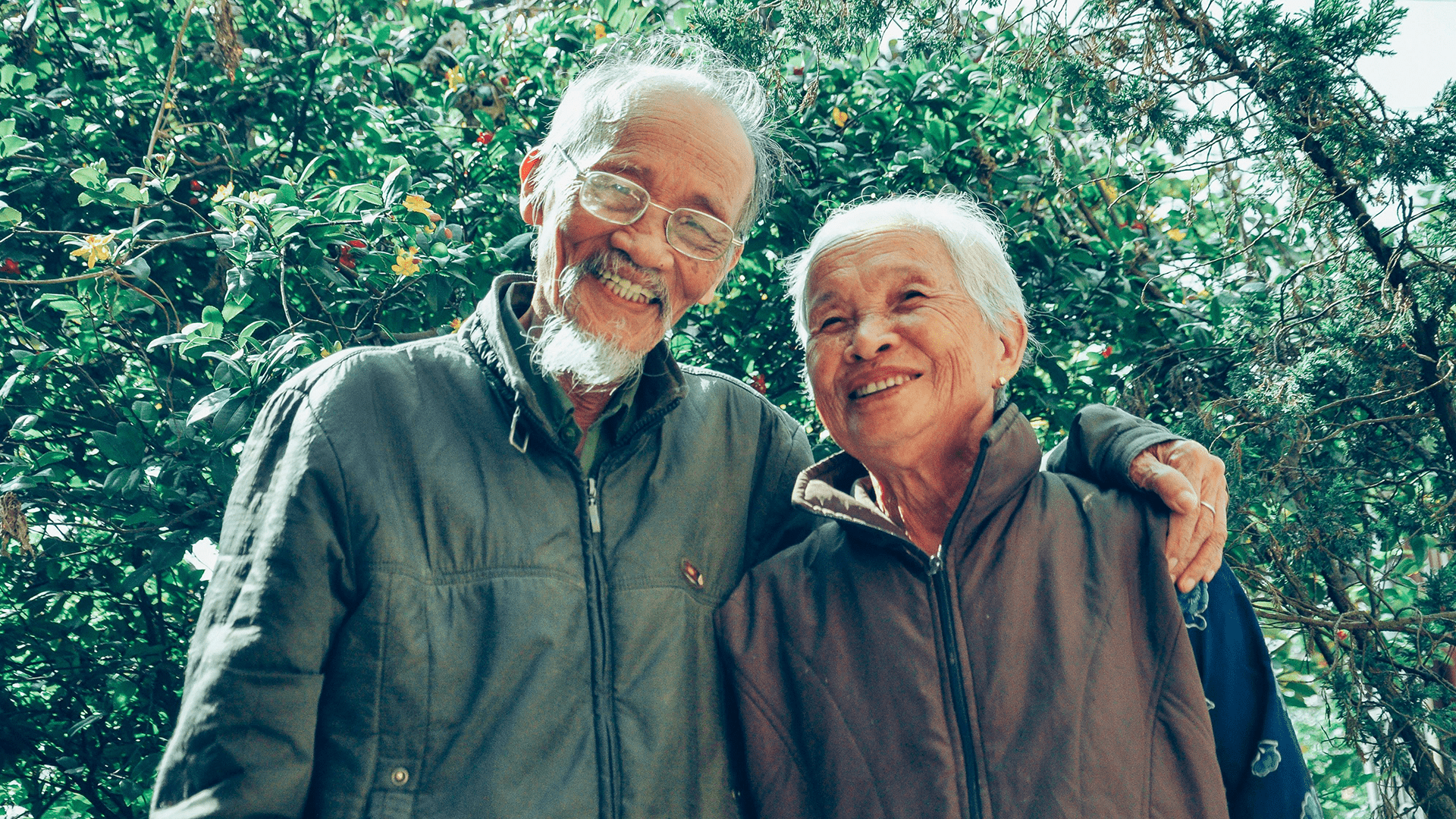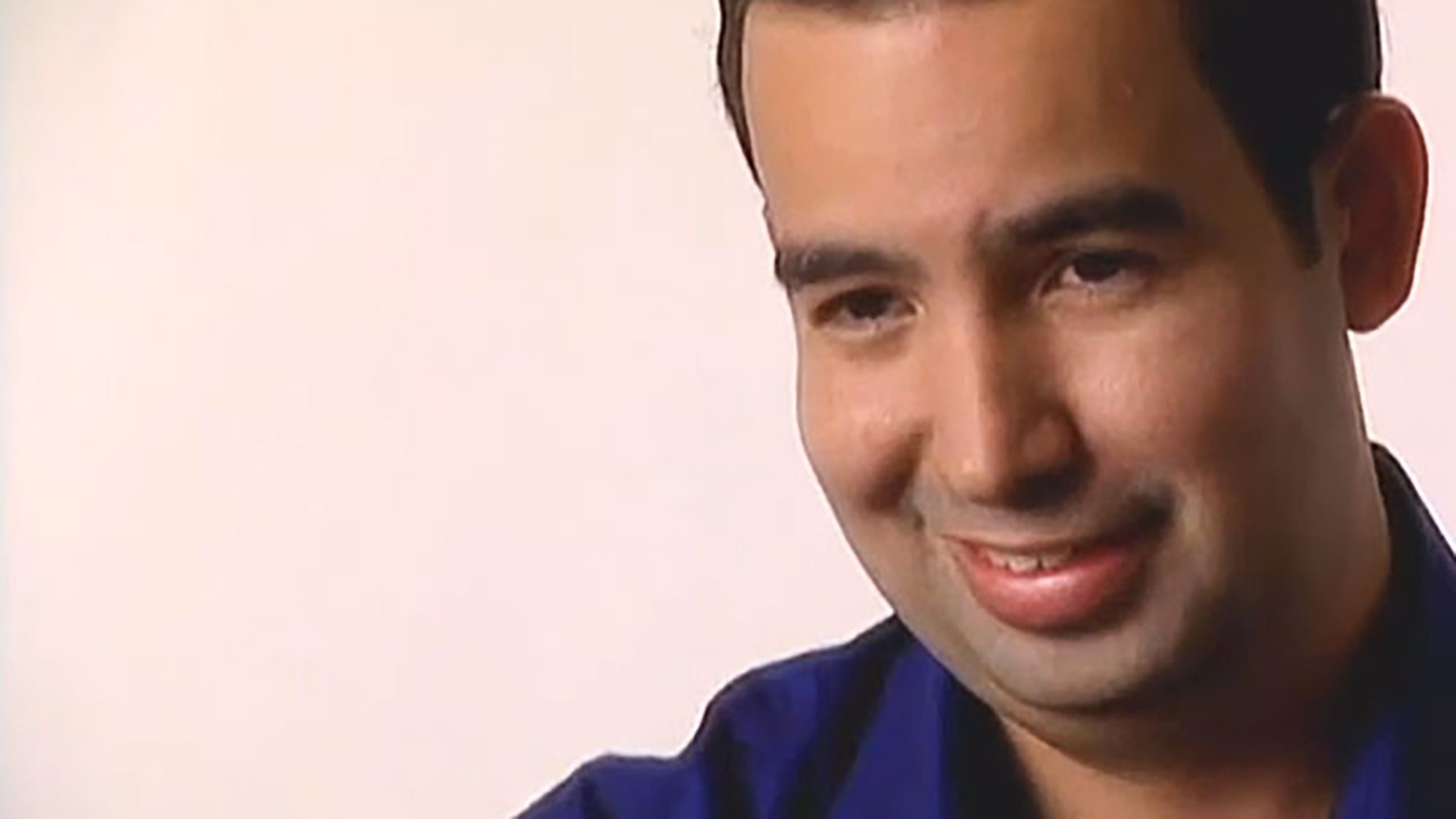Survivor Interview – David C.
David is a mediastinal large cell lymphoma survivor. He talks about clinical trials, setting priorities in his life, and his relationship with his daughters.

I run the Lung Cancer Research Program at Vanderbilt. My father was also a cancer doctor. He had gone to Africa to work with Dennis Burkitt and the Burkitt’s lymphoma patients, where one of the first successful treatments for cancer was developed. After coming back to the United States, he helped develop the type of chemotherapy that was used to treat and cure me years later.
I became a cancer survivor in 1999, when I was diagnosed with mediastinal large cell lymphoma. I can still picture it to this day. I was at a cancer meeting, shaving, and noticed that my neck veins were sticking out. I got a chest x-ray and saw that I had a mediastinal mass and a lung mass. I can remember discussing with my colleagues my own CT scan. I put it up on the light box and said, “This is me. What do you make of this?” I presented my own case at our cancer conference. It was an out-of-body experience.
I remember being diagnosed on my son’s birthday, when I had this surgery. I had to call home and tell them what was going on. Even though I worked for ten years with cancer patients, when I called them up I said, “diagnosed as c–” and I couldn’t say it. It was something that just couldn’t be applying to me. In spite of all my training and dealing with this kind of problem on a daily basis, it couldn’t come out.
I did a little bit of research. The very first paper I pulled up said that it had a 17% cure rate. Of the lymphomas, this was one of the worst. Here I was, 40 years old, with four kids. I was very afraid that they would be left without a dad and without support. I won’t get into the story, but my wife actually left me during this period, too. I was dealing with cancer and dealing with four children at the same time.
I had part of my left lung taken out, and I had four rounds of chemotherapy and radiation to my chest. My son fully comprehended. He was the oldest, at 13. He was very scared that he would lose his dad.
My daughters had a hard time. They couldn’t really comprehend it until I started losing my hair. Then they knew something was wrong. My oldest daughter, who was nine, would look at me and start crying. When my hair started really getting thin, I got my electric razor and handed it to my seven-year-old. I said, “Here, I need this shaved off.” So my daughter took the razor and started shaving. Then my other daughter came up and thought it looked like fun, so they ended up having a great time shaving off the rest of my hair. My youngest daughter broke out her watercolor markers, and they drew flowers and butterflies and things on my head. They ended up just giggling and laughing. I think it helped bring them into the cancer experience and make them realize that this was not some stranger that had shown up in their house. There was something wrong, but I was still the same person. My oldest daughter actually fashioned a wig for me, with a blonde ponytail like hers, out of corn tassels.
I think it helps patients accept me as their physician that I really understand the kinds of things they go through. Having had the chest surgery, the one-inch tubes hanging out my side, chemotherapy, mucositis, nausea, radiation, esophagitis, getting all the things that I tell patients about that other doctors can only describe. I’m honest with them that it doesn’t feel good, but I worked every single day throughout my whole cancer treatment, except my treatment days. That gives a lot of people some hope that this is not going to totally disable them. I encourage them to do normal things that they do to the limits of their ability.
I tell my patients that the best way to face cancer is to deal with it one day at a time. What’s the best thing to do today? How do I feel today? They get very worried about what happens if something doesn’t work. Those are reasonable concerns. But if it’s a beautiful day, go outside and don’t worry about next month or next year. Let’s deal with today.
Afterwards, I was determined to take better care of myself. I had been a workaholic, 14-hour days and then coming home and taking care of the kids. At the end of my treatment, I was short of breath walking for ten minutes. I weighed 254 pounds. I remember that day I stood on the scale and said, “This is not acceptable.” I determined that I owed myself an hour or a half-hour a day. So every single day, I booked an hour on my calendar to go over to this cardiac rehab place. Since then, I developed an exercise program. I’ve eaten better and taken better care of myself. I lost 75 pounds. I’ve taken up bicycling again. I even participated in the Tour of Hope last year. I had a great time.
I never was really afraid of dying. I’ve always said, “If I just take it day by day, I would get through this.” If I didn’t, then that’s the way it was gonna be. Now, I’m more worried about late side effects of when you have Adriamycin chemotherapy and radiation to your chest. My heart function is measurably decreased by the treatment. You’re prone to premature coronary artery disease and other kinds of second cancers.
Emotionally, I deal with this as an experience that really corrected the course of my life in a lot of ways. I feel better about myself. I feel confident that I am a stronger person than I was going in. This experience has bonded me to my children more strongly than before, being the workaholic and coming home after they were in bed.
My dad was Cancer Center Director at the University of Wisconsin. He was chairman of ECOG. I tried to do this alone and tough it out. He said, “Dave, if you need some help, just let me know.” And I said, “That’s okay, Dad. I can take care of it.” Then he called again and said, “I really don’t mind. All the kids are out of the house. I could come.” It was clear to me that he really wanted to come down and help take care of me or do what he could as a dad.
The year after finishing my treatment, I took two weeks off, which was totally unheard of for me, and went to Sicily with him, my mom and my sister for two weeks. We had the most wonderful vacation I’ve ever had in my life. The next year, he died of a heart attack in Singapore. I’m terrifically grateful that cancer had made me realize the importance of family, strengthened my bond with my parents and gave me the insight to say, “This two weeks of pushing paper at Vanderbilt is not as important as taking two weeks with my parents.”
There’s no way to explain to someone how it feels to be diagnosed with cancer. How you’re just doing your normal things and then one day, something is not right and you get thrown into this blender of doctors, tests and evaluations. It sometimes is a stunningly fast succession of things that happen. But I had a major advantage over my patients, because I have knowledge about what all these things mean. I went straight to physicians that I could trust with my life. My patients are hearing a whole new vocabulary. They’re putting their life in the hands of someone they’ve never met before. These are very difficult things that I didn’t have to deal with.
A major thing that I discuss with all my patients is that the best care is in the clinical trial. I tried to get in a trial, but wasn’t eligible for anything that was open. People think that clinical trials mean they’re guinea pigs, and we’re just testing things that don’t have any chance of helping, but that’s not at all the case. This is state-of-the-art treatment, and we’re trying to make it better. I can see in the day-to-day management of patients in a clinical trial that they’re trying so hard to gather accurate data that patients get twice the personal attention. It’s a crying shame that only a few percent of adult cancer patients go onto trials. We could learn so much more, so much more quickly if patients would enter clinical trials so we could test some of these new drugs.
There are three phases to treatment. First, you’re willing to accept high toxicity for a chance of cure. When you accept that there’s no chance of cure, treating them with the point of prolonging their life, stabilizing it as best you can. Then, when you either run out of options or they can’t tolerate the treatment anymore, you address the symptoms and treat the pain. But each of these transitions is different for every single patient and every single-family dynamic.
The problems come when the patients are ready to do one thing, but the family doesn’t want to let them. I think you come to a point when it’s pretty clear that we need to rethink things. That’s assisted by my philosophy. I tell them, “You deal with cancer one day at a time. What’s the best thing to do today?” As long as we have this dialogue and interchange with the patient and the families, most of the time, the patients and I are both comfortable with these transitions. Sometimes they do things that I don’t agree with, but that’s people and that’s life.
Virtually always, when it comes down to their death, they’re comfortable with it, and they understand what’s going on. It’s gratifying and humbling to see how much at peace a cancer patient can be when they ultimately lose the battle. They’ve done the best that they can, and we fought the good fight. We just need better treatments than we have today.
Survivorship means having beaten a difficult disease, having greater understanding of what it means to be alive, appreciation for the suffering that other patients have to go through, and a greater drive to improve therapy for future patients through what I do as a career.
My name is David Carbone, and I’m a five-year survivor of mediastinal large cell lymphoma.

